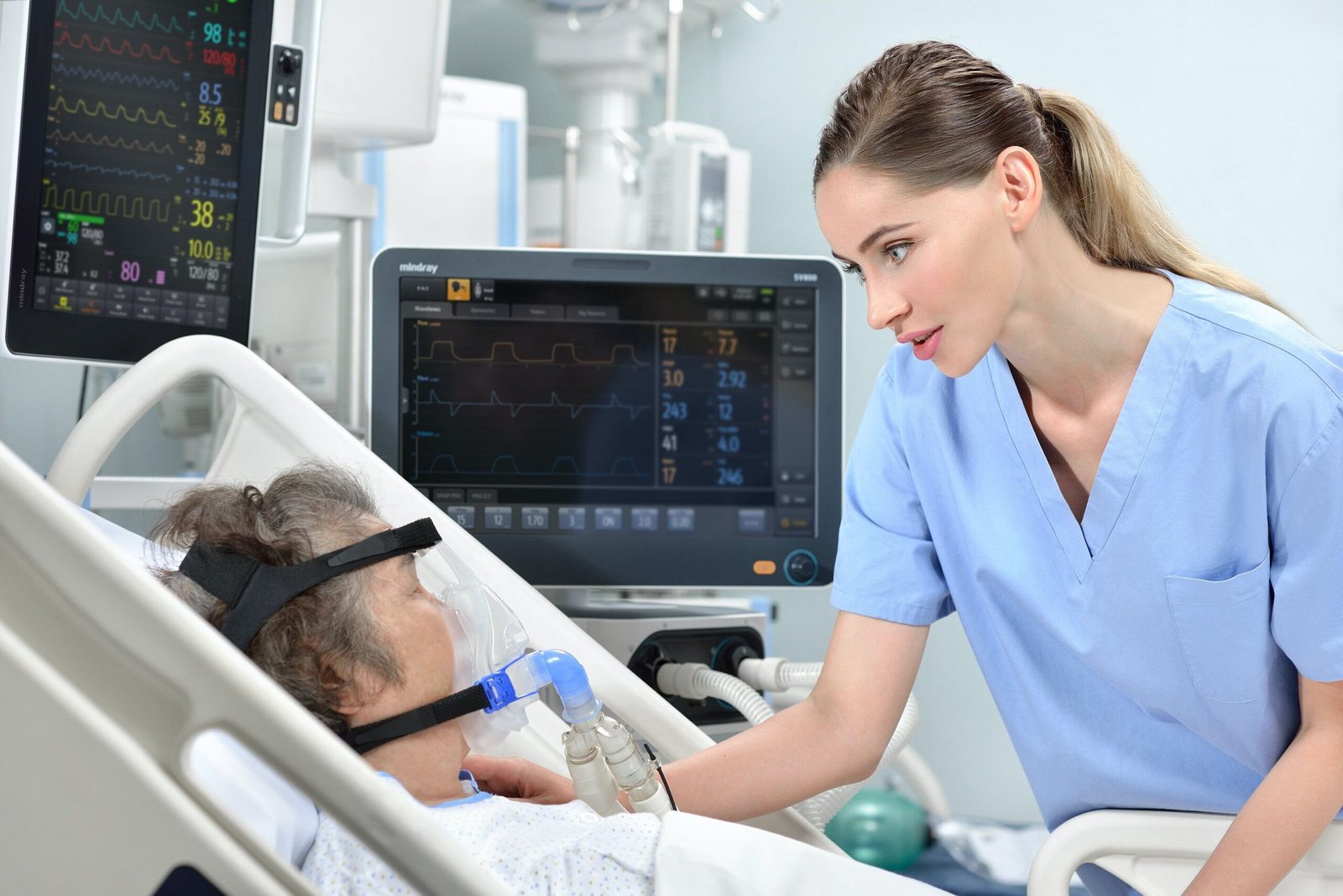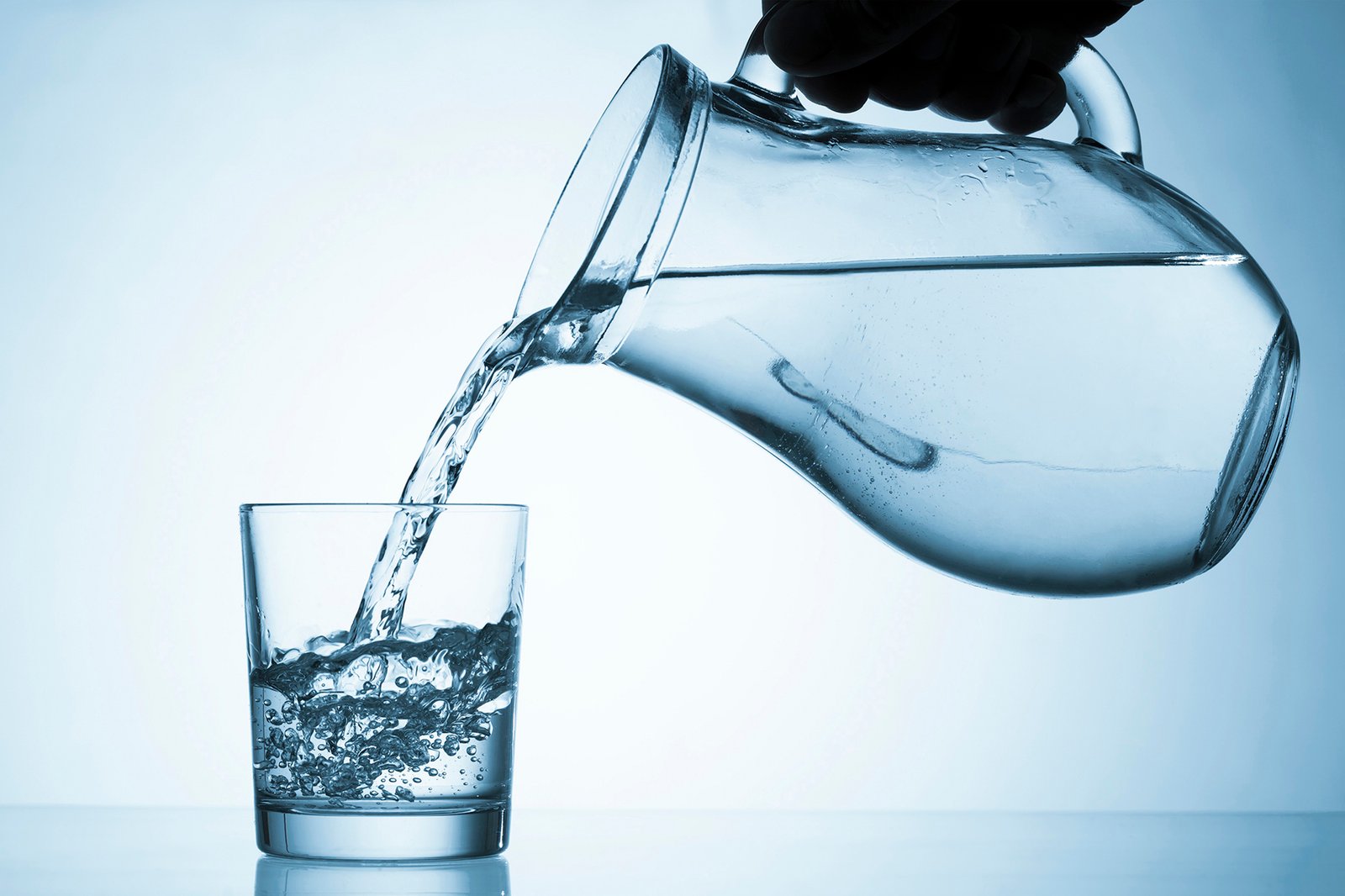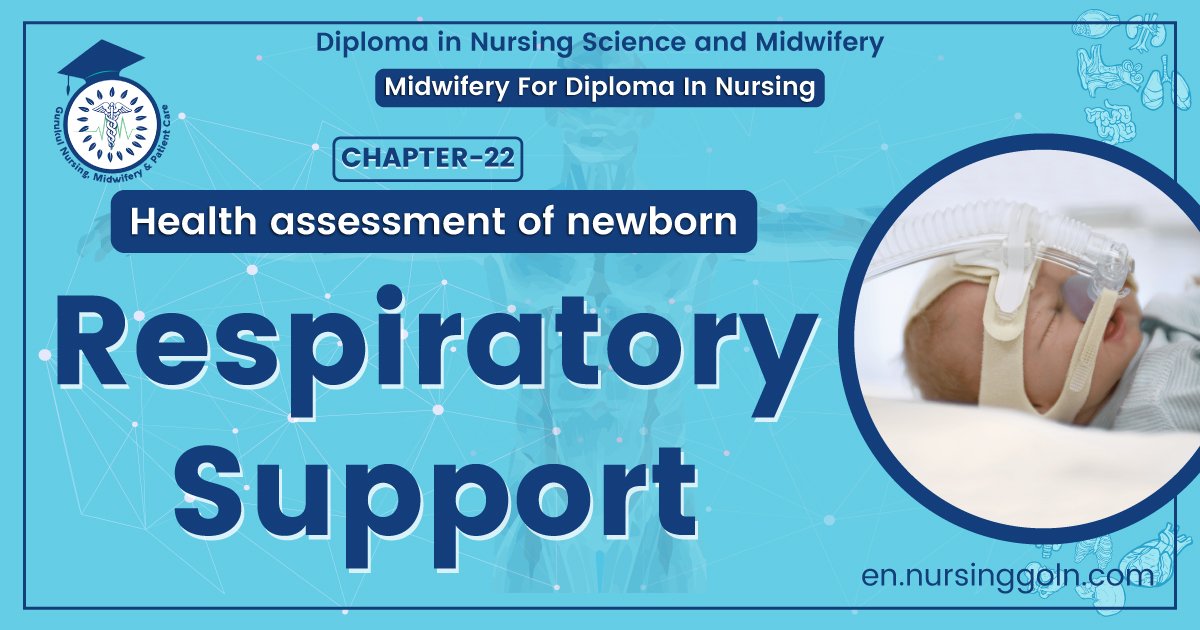Respiratory support – This course is designed to understand the care of pregnant women and newborn: antenatal, intra-natal and postnatal; breast feeding, family planning, newborn care and ethical issues, The aim of the course is to acquire knowledge and develop competencies regarding midwifery, complicated labour and newborn care including family planning.
Respiratory support
Respiratory support
Respiratory support in paediatric emergency settings ranges from oxygen delivery with subnasal oxygen to invasive mechanical ventilation.
Or
This is usually because of hypoxaemia or ventilatory failure, or both. The supportoffered ranges from oxygen therapy by face mask, through non-invasive techniques such as continuous positive airways pressure, to full ventilatory support with endotracheal intubation.

Initial stabilization maneuvers
Initial stabilization maneuvers include mild tactile stimulation, head positioning, and suctioning of the mouth and nose followed as needed by
1. Supplemental O2
2. Continuous positive airway pressure (CPAP)
3. Noninvasive positive pressure ventilation (NIPPV)
4. Bag-and-mask ventilation or mechanical ventilation
Neonates who cannot be oxygenated by any of these means may require a full cardiac evaluation to exclude congenital heart disease and treatment with high-frequency oscillatory ventilation, nitric oxide, extracorporeal membrane oxygenation, or a combination.
Respiratory support of high risk baby
Respiratory distress is the commonest problem in preterm baby.
1. Baby should be positioned with neck slightly extended and air passage to be cleared by gentle suctioning to remove the secretion, if need.
2. Precautions should be taken to prevent aspiration of secretions and feeds.
3. Oxygen therapy should be administered only when indicated.
4. Baby’s respiratory rate, rhythm, chest retraction, nel flaring apnea, cyanosis, oxygen saturation etc. to be monitored at frequent interval.
Hydration
Hydration is a solid component containing water molecules combined in a definite ratio as an integral part of the crystal.
Or
Hydration may refer to hydrate a term used to indicate that a substance contains water.
Or
Hydration may refer to any of a class of compounds containing chemically combined water.

Importance of hydration
1. Hydration is important of our overall health regardless of our daily activity level. A large percentage of our body is made up of Water.
2. Proper hydration means ensuring that our body maintains that level of water’
3. Water helps our body regulate Temperature.
4. Transport nutrients to organs and tissues
5. Transport oxygen to cells
6. Remove waste &
7. Protection our joints and organs
8. Hydration however is more than just drinking water. Proper hydration is essential for concentration and attention to detail, whether we are running a more than or a more than of errands.
We need hydration: As estimate 75 percent of Americans are chronically dehydrated. Dehydration most others occurs when we do not drink enough on a day to day basis, most people won’t realize they are dehydrated until they start to feel the symptoms and by this time the damage of dehydration has set in. Dehydration must be result in-
Muscle fatigue.
- Crams.
- Headaches.
- Dizziness.
- Nausea.
Complications of nutrition and hydration
1. Mother do not breastfeeding:
- Diarrhea.
- Ear infection.
2. Excess iron can cause:
- Retardation of growth.
- Increased bacterial replication in infection.
3. Vitamin-A:
- Measles.
- Diarrhea.
4. Zinc
- Skin lesions.
- Diarrhea.
- Growth failure
Nutrition
It is the process whereby living organisms utilize food for maintenance of life, growth, the normal functioning of tissues and organs, and the production of energy.
Or
Nutrition is the science that interprets the interaction of nutrients and other substances in food in relation to maintenance, growth, reproduction, health and disease of an organism.
Main importance of nutrition:
1. Give our vitality and energy for life.
2. Help us stay at a weight that’s right for us.
3. Boost our immune system.
4. Improve sports performance.
5. Delay the effects of aging.
6. Keep us active and fit into old age.
7. Help beat tiredness and fatigue.
8. Protect teeth and keep gums healthy.
9. Enhance our ability to concentrate and possible alter mood.
10. Ward of series illness like heart disease certain cancers, mature-age onset diabetes, and gallbladder disease.
